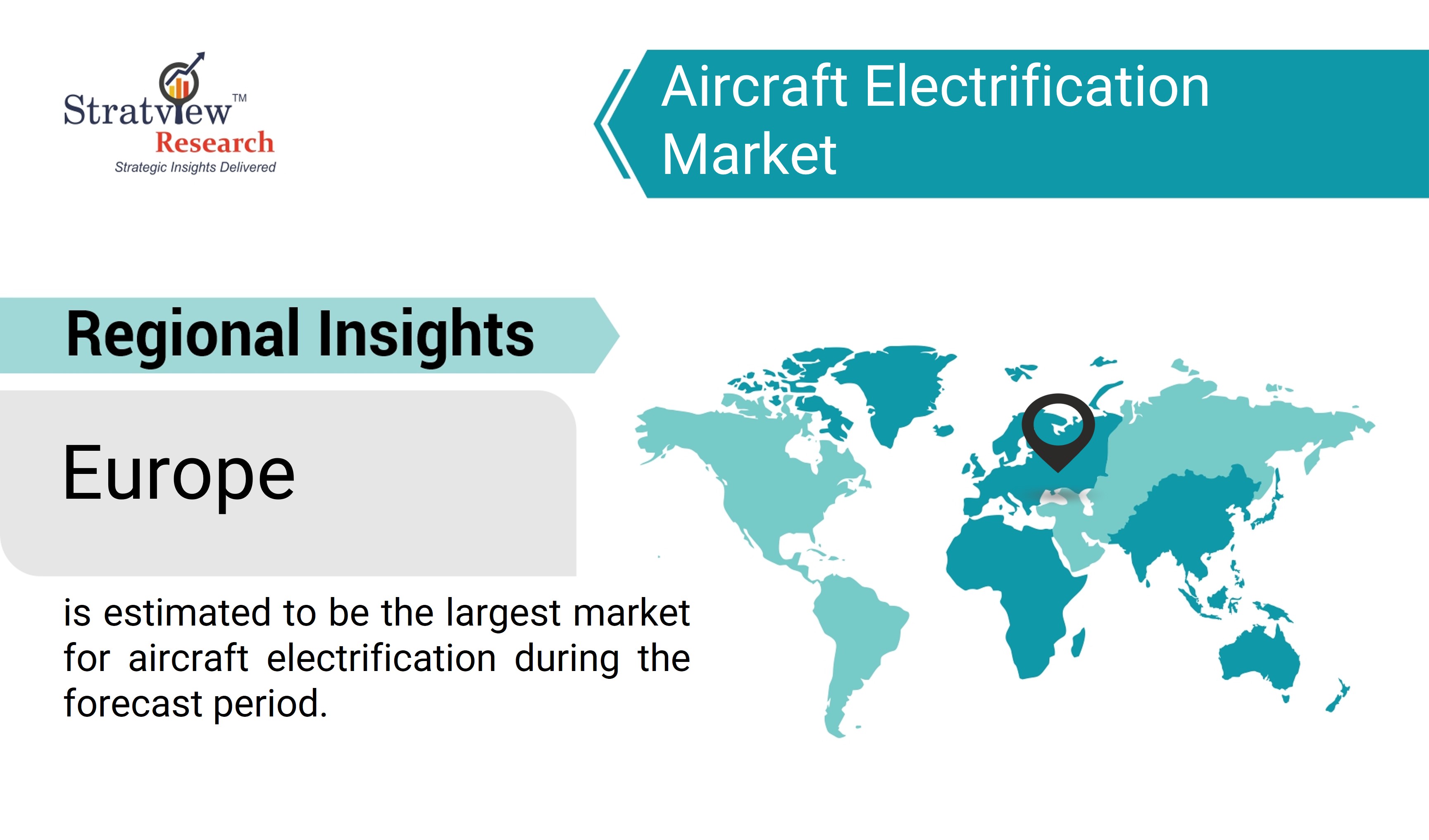According to Stratview Research, the aircraft electrification market was estimated at USD 6.8 billion in 2022 and is likely to grow at a CAGR of 14.09% during 2023-2028 to reach USD 15.04 billion in 2028.
In the ever-evolving landscape of aviation, a transformative shift is underway as the industry embraces the concept of aircraft electrification. With the promise of cleaner skies and more efficient flight operations, the aircraft electrification market is poised for unprecedented growth and innovation. As stakeholders navigate this dynamic landscape, understanding the opportunities and challenges inherent in electrifying aircraft is essential for success in this burgeoning market.
The Evolution of Aircraft Electrification
Aircraft electrification marks a significant departure from traditional combustion engines, replacing them with electric propulsion systems powered by batteries or fuel cells. This shift towards electric power offers numerous benefits, including reduced carbon emissions, lower operating costs, and enhanced aircraft performance.
The concept of aircraft electrification has evolved rapidly in recent years, driven by advancements in battery technology, electric motors, and power electronics. Lithium-ion batteries, in particular, have emerged as a leading energy storage solution, offering high energy density, rapid charging capabilities, and long lifespan. These technological advancements have made electric propulsion systems more efficient, reliable, and economically viable than ever before.
Opportunities in the Electrification Market
The aircraft electrification market presents a wide range of opportunities for stakeholders across the aviation industry. Airlines, aircraft manufacturers, battery suppliers, and technology providers are all poised to benefit from the transition to electric power.
For airlines, electrifying their fleets offers the potential to reduce fuel costs, lower maintenance expenses, and meet sustainability goals. Electric aircraft produce zero emissions during flight, making them ideal for operations in environmentally sensitive areas or urban airspaces with stringent emissions regulations.
Aircraft manufacturers have a significant opportunity to capitalize on the growing demand for electric aircraft platforms. Developing and commercializing electric and hybrid-electric aircraft opens up new markets and revenue streams, while also demonstrating a commitment to innovation and sustainability.
Battery suppliers and technology providers play a crucial role in the electrification market, supplying advanced lithium-ion batteries, electric motors, and power electronics for electric aircraft applications. These companies have the opportunity to drive innovation and establish themselves as leaders in the rapidly expanding electric aviation sector.
Challenges to Consider
While the aircraft electrification market holds immense promise, it is not without its challenges. One of the primary concerns is the limited energy density and range of current battery technology. Despite significant advancements, lithium-ion batteries still lag behind traditional fossil fuels in terms of energy density and storage capacity. Overcoming these limitations will require continued research and development efforts to improve battery technology and increase flight range.
Another challenge is the development of infrastructure to support electric aviation operations. Charging infrastructure, battery swapping stations, and maintenance facilities for electric aircraft will need to be established to support widespread adoption. Additionally, regulatory frameworks and certification standards for electric aircraft must be developed to ensure safety and airworthiness.
Navigating the Electrification Market
As stakeholders navigate the aircraft electrification market, collaboration, innovation, and strategic partnerships will be key to success. By working together to overcome technical challenges, develop innovative solutions, and establish industry standards, stakeholders can unlock the full potential of electric aviation and pave the way for a more sustainable future in flight.
With the demand for cleaner, more efficient aircraft growing rapidly, the aircraft electrification market represents a significant opportunity for those willing to embrace innovation and lead the charge towards a greener, more sustainable aviation industry. By staying wired for success and embracing the opportunities presented by electrifying aircraft, stakeholders can position themselves as leaders in this transformative market.

